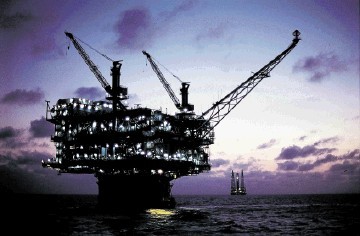
There is mounting evidence that, in line with the improving fortunes of the upstream oil and gas industry, deepwater fields are back in play and more competitive than ever.
With a number of deals in this resource class already approved in 2017, including BP’s Mad Dog 2 in the Gulf of Mexico, and Statoil and Total’s recent deals in Brazil, deepwater projects look set to feature large in boardroom investment decisions over the next few years.
With these trends likely to continue, together with the steady decline in easily extractable hydrocarbons, it seems inevitable that operators will increasingly look to target resources from deeper, more remote offshore plays, characterised by their complexity, higher risk, and often challenging reservoir fluids.
And it follows that operators will need to address the issues made ever-more problematic in these higher stake finds. Developing deepwater fields is a costly and complex process. Taking into account transportation, manpower, qualifications and infrastructure costs.
Appraising and producing new reserves means contending with increasingly harsh downhole conditions. These harsh conditions are where specific flow assurance challenges, that negatively impact production, are particularly pronounced.
Hydrate production
Among the industry’s costliest and hardest-to-remediate flow assurance issues is hydrate formation.
Presenting a high risk to production, gas hydrates are ice-like structures comprising water and gas. Hydrates can plug up lines and disrupt production, causing a potentially hazardous pressure accumulation.
They are particularly problematic in deepwater regions, where pressure gradients and low fluid temperatures promote formation. It’s also a major issue in remote frontier developments where pipelines are routed along the seabed over long distances.
Remediating hydrate formation when it occurs is even more problematic considering deepwater wellbores and flowlines are harder and more expensive to access.
Upstream inhibitor benefits v downstream challenges
A common approach to suppress hydrate growth is to inject thermodynamic inhibitors, such as mono-ethylene glycol (MEG) or methanol. Methanol is batch dosed, while MEG is usually injected continually into pipeline fluids.
Timely, accurate analysis of the concentration of these inhibitors is essential, particularly for remote, deepwater developments where the infrastructure is large and complex.
Specifically, the benefits of being able to analyse concentrations quicker onsite include avoiding costly chemical wastage; optimising start up procedures by monitoring methanol transition times from tiebacks; while — for MEG — giving visibility of whether reclamation and regeneration units are performing properly.
Yet gas chromatography (GC) equipment — traditionally used for testing — is often not available onsite. This means samples must be flown long distances for analysis onshore: an expensive option where results are not available for weeks. And the presence of methanol and MEG reduces the quality and value of produced fluids, causing problems further downstream.
To protect from lost time and income due to damages, refineries and terminals often impose limits on the acceptable level of chemicals: exceeding these mean huge fines for operators.
One example of a technology turning MEG and methanol analysis on its head is LUX Assure’s OMMICA™, a chemical testing kit which provides fast, precise analysis of these chemicals onsite, regardless of geography and complexity. In deepwater or remote regions, the technology saves operators significant time and money by replacing expensive sample testing, with lengthy turnaround times, providing the capability to make near real-time decisions.
Meeting the challenge
As the stirrings of an industry on its way back intensify, how operators seek to successfully address the specific challenges these frontier projects present will be fascinating.
Key to boardroom discussions that drive investment decisions will be the impact innovations and technological developments have on transforming upstream and downstream risk; safety and economics: even in complex reservoirs and remote discoveries.
Duncan Baillie is business development manager for OMMICA, LUX Assure.